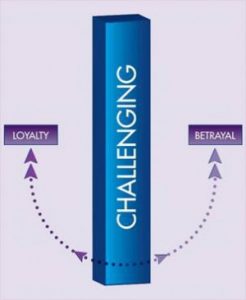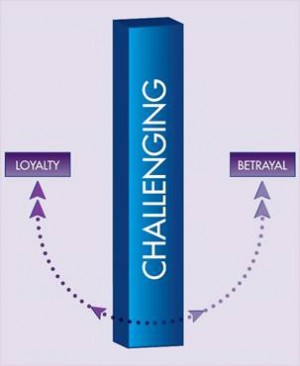Many of our clients report a feeling of overwhelm as they work harder than they have ever done before and for what feels like such a meagre impact on the bottom line results. Remote working has seen many people sitting at their desks for longer, working extra hard to prove themselves to others within the organisation and yet not getting the traction they want and need in the marketplace to sustain business continuity.
It was interesting to read the wise words from James Clear (author of Atomic Habits) when he declared in a recent newsletter that:
“Without hard work, a great strategy remains a dream.
Without a great strategy, hard work becomes a nightmare.”
People are working hard and yet find themselves stopping and asking about the:
- Relevance of what they are doing
- Purpose of the work they undertake and what the organisation is striving to do
- Sustainability of their effort in the longer term
- Recognition for such effort in the shorter term.
Leaders everywhere have experienced significant events, decisions and situations since early March and have found themselves in uncharted territory – and for many they have done what they know best – focused on getting stuff done! Experience tells us that in times of crisis it is human nature for people to over manage and under lead. Thus creating the nightmare of hard work with little to show for it!
All leaders will benefit from taking a step back (and up) to create focus for themselves and for others and stop creating the “nightmare of hard work”.
Now is an ideal time to reflect and determine what is needed to continue leading the business through the crisis so you bounce quickly into recovery while taking into account the economic downturn we face. Many leaders are also recognising the benefit of identifying the rebooting activities to ideally position the business to transition into the future.
From a leadership perspective to have the business ready for recovery and embedding beneficial changes made to date is going to take far more discipline, courage, determination and consistency than leaders have ever experienced before. This is the focus required to ensure we don’t all just get buried in hard work.
Resist the temptation to over manage and under lead
We recommend leaders refresh their appreciation that managing brings a degree of order and consistency to performance while leading is taking people through change. Take a moment to look in the mirror and see where you are investing most of your time and energy on a daily basis. Are you optimising the balance?
Without becoming pedantic about it – it is important to acknowledge and know the difference in your team and your organisation between activities that constitute managing and those that fulfil leading. It is essential to create a strategy – even if it is 90 days at a time given the uncertainty we live under at the moment. It is going to be an agile strategy – and this is where many leaders flounder. As author Patrick Hollingworth claims we need organisations to be “light and fast”.
Capability for enabling teams with an agile focus
He goes on to share: “Danish philosopher Soren Kierkegaard once said that the problem with life is that it is most clearly understood backwards, but it must be lived forwards.”
I share with you the 3 skills he recommends leaders build in themselves and in others within the business if they want to be light and fast:
- Sense making
This is about devising plausible understanding of the unknown – throwing in hypotheses and testing them for validity and practicality and then “giving them a go”. This is used for your internal and your external environment and is very different to what most leaders have done historically – using a SWOT analysis for example - Engage in full spectrum decision making
Again this is different to what leaders have historically done and it begins with recognising that the human brain engages in two ways of thinking – fast and slow. Fast thinking is quick, intuitive, often at a subconscious level and often emotional. While slow thinking is steady, deliberate and rational. Full spectrum decision-making means we leverage both optimally so we can be agile given the uncertain times we live in now. - Make your teams critical

This is an interesting concept and is described in a slightly protagonistic way in his book and yet I totally agree with what he claims – team social harmony doesn’t equal effective team performance. At Courageous Leaders we have been talking about this for years and expressing it in our leadership programs as a need to be able to engage in challenging conversations with each other.It is about bringing the focus and the discipline to have these conversations rather than “playing happy families” as Hollingworth refers to – which is all about the need for loyalty. And if you don’t do this you are perceived as “betraying” the team. Or even worse, betrayal happens when people decide to engage in conversations behind others’ backs rather than having the courage to have the conversation with the person they really need to.
Getting started
Don’t let the overwhelm and draw card of hard work that means I am getting stuff done distract you from getting started:
- Firstly make the decision that you absolutely want to devise your next 90 days strategy/plan
- Engage your team members in a conversation to explain this is what you are going to do together and set aside a date and time
- Start with sense making – and set the scene and expectation that everyone needs to be curious, to challenge, to ignite conflict and to bring as many different orientations as possible
- Use the “map” you create as the foundation for your decision making – and ask us about OODA if you want a process that enables slow and fast thinking
- Commit to the next 90 days and keep revisiting the plan and change it if you perceive it is not creating the energy and outcomes you want.
Want some more information about this blog? Contact us so we can chat.









